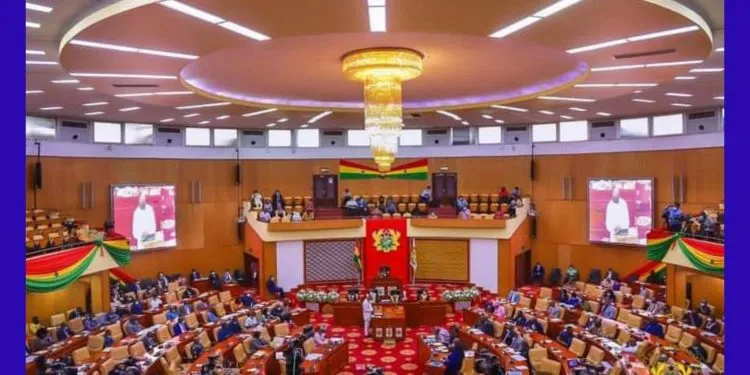By Amina Hilda
The Ghanaian Parliament has expressed its support for a proposed anti-LGBTQ bill despite widespread condemnation from activists, rights groups, and the international community.
Alban Bagbin, the speaker of Ghana’s parliament, predicted that the law “will definitely be passed before the next elections” in 2024.
The anti-gay bill according to local reports will impose a three-year prison sentence on all those caught in LGBTQ-related activities.
The introduction of the current bill has led to an increase in homophobic assaults across the nation. The director of the LGBTIQ+ rights organisation Rightify Ghana was abducted and beaten by homophobic vigilantes in August 2022. He was held captive for a few days until a monetary ransom was paid.
The ‘obligation to report’, however, is arguably the most hazardous part of the bill. Anyone who believes a relative, friend, or housemate to be gay is urged to contact the police. For identifying or being seen as LGBTQ, individuals might face up to five years in prison after being reported.
Long history of anti-gay attitudes
Anti-gay sentiments are not new in Ghana. However, being gay has recently continued to be a reality marked by stigma, homophobia, and transphobia. However, despite the fact that same-sex relationships were always prohibited, the law was not always upheld. Even openly accessible LGBTIQ+ community places existed in larger cities like Ghana’s capital, Accra.
Current trends in the anti-gay legislation can be traced back to a meeting held in Accra in 2019 by the World Congress of Families (WFC), an extremist Christian group based in the US.
The WFC has a significant international impact on anti-LGBTIQ+ attitudes and legislation in many countries. It describes itself as a network that “seek[s] to restore the natural family as the fundamental social unit and the seedbed of civil society.”
Increase in human rights violations
According to a 2015 report by the Human Rights Campaign, its “presence in Africa has coincided with a disturbing rise in harsh penalties for LGBT Africans in nations like Kenya, Uganda, and Nigeria.” The WFC also started preparing the basis for anti-LGBTIQ+ legislation in Ghana in 2019.
After receiving death threats and online harassment, an LGBTIQI+ center in Accra was shut down in less than two years. To protect its workers, the center—intended to be a safe haven for the neighborhood—was proactively shuttered in February 2021.
Then, in May 2021, police and security personnel illegally searched a training session on recording human rights abuses against LGBTQI+ individuals in the Ho district of south-eastern Ghana. The arrest of 21 people resulted in a number of human rights breaches, including physical assault by police, rejection of bail, and intimidation techniques.
Due to mounting pressure and inadequate evidence, the accusations were dismissed; however, numerous Ho 21 members had their lives turned upside down and were forced to go into hiding or leave the country.
The following month saw an increase in violence against LGBTQI+ people, both at the hands of the police and members of the general public, with little to no response from authorities. The bill originally appeared online at that time. Ghanaians, who had been made to believe that homosexuality was not just a Western import but also a danger to their social stability, appeared to accept it in general.
According to the new bill, all LGBTQ activists or persons advocating for their rights will be liable for 10 years imprisonment.
The bill is however expected to pass through further scrutiny before it can officially be announced as a law in the country.
“The bill’s future remains uncertain, pending further scrutiny and potential legal challenges, as activists and advocates continue to voice their concerns over the potential infringement on individual freedoms and the protection of LGBTQ+ rights,” reports OkayAfrica.
This bill highlights a growing trend in the criminalization of same-sex relationships across Africa, as it comes after Uganda’s parliament, on March 21, passed one of the harshest laws to criminalize all LGBTQ+ persons in the country.



